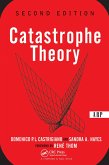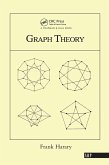Originally invented to explain complicated economic behaviors, game theory is poised to become a fundamental technique in the field of wireless communications and networks. This book explains how game theory can be used to address a wide range of issues in wireless communications and examines how it can be employed in infrastructure-based wireless networks and multihop networks to reduce power consumption, improve system capacity, decrease packet loss, and enhance network resilience. The authors demonstrate how to effectively apply the game theoretic model to handle issues of resource allocation, congestion control, attack, routing, energy management, packet forwarding, and MAC.
This comprehensive technical guide explains game theory basics, architectures, protocols, security, models, open research issues, and cutting-edge advances and applications. Describing how to employ game theory in infrastructure-based wireless networks and multihop networks to reduce power consumption, it facilitates quick and easy reference to related optimization and algorithm methodologies. The book explains how to apply the game theoretic model to address resource allocation, congestion control, attacks, routing, energy management, packet forwarding, and MAC.
This comprehensive technical guide explains game theory basics, architectures, protocols, security, models, open research issues, and cutting-edge advances and applications. Describing how to employ game theory in infrastructure-based wireless networks and multihop networks to reduce power consumption, it facilitates quick and easy reference to related optimization and algorithm methodologies. The book explains how to apply the game theoretic model to address resource allocation, congestion control, attacks, routing, energy management, packet forwarding, and MAC.









